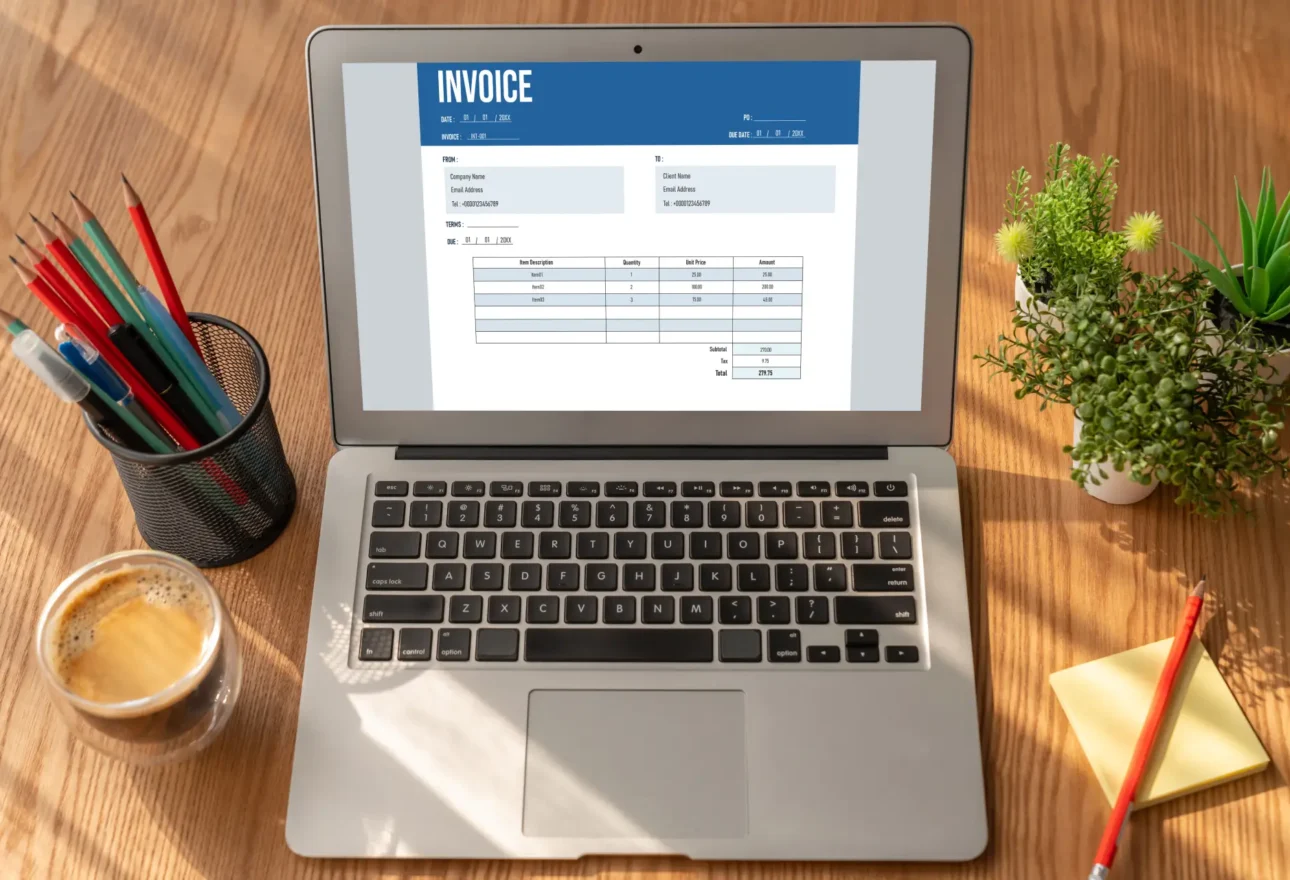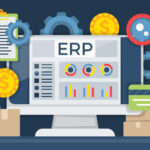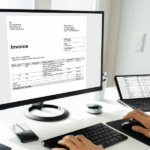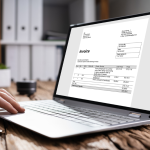Malaysia is embracing digital transformation, and a key part of this journey is the rollout of e-invoicing. This initiative aims to enhance tax administration by increasing efficiency, accuracy, and transparency. In this blog, we’ll explore the intricacies of e-invoicing in Malaysia, focusing on its benefits, the implementation process, and the role of the MyInvois Portal. As Malaysia’s premier MDEC-accredited e-invoicing solution provider, Advintek is committed to helping businesses make a smooth transition to e-invoicing.
What is e-Invoicing?
E-invoicing refers to the digital exchange of invoices between businesses, replacing traditional paper invoices with electronic formats. This method accelerates the invoicing process, making it more efficient and reliable. An e-invoice includes the same details as a paper invoice—such as invoice number, date, items, quantities, prices, and taxes—but in a digital format. With Advintek’s advanced e-invoicing software, businesses can create, send, and receive invoices quickly, enhancing accuracy and streamlining operations.
Why is Malaysia Implementing e-Invoicing?
The Malaysian government’s decision to mandate e-invoicing is driven by several goals:
- Enhanced Tax Compliance: Real-time transaction validation reduces tax evasion and improves tax collection efficiency.
- Improved Operational Efficiency: Automation saves time and resources for businesses and tax authorities alike.
- Strengthened Digital Economy: Adopting digital invoicing aligns with Malaysia’s ambition of becoming a leading digital economy.
- Data-Driven Decision Making: E-invoicing generates structured data that supports better business insights and government policymaking.
Benefits of e-Invoicing for Businesses
Transitioning to e-invoicing brings a range of advantages for businesses, especially when using Advintek’s top-tier e-invoicing software:
- Cost Reduction: Reduce costs related to paper, printing, and postage.
- Time Savings: Automated invoicing processes speed up invoice approval and payments, freeing up resources.
- Improved Accuracy: Minimize errors in data entry and tax calculations.
- Better Cash Flow: Faster invoice processing and fewer delays in payment approval help improve cash flow management.
- Increased Customer Satisfaction: Quick and accurate invoices improve customer relationships.
- Regulatory Compliance: Stay aligned with Malaysia’s tax regulations, reducing risk of penalties.
Improved Cash Flow: How e-Invoicing Makes a Difference
One of the key benefits of e-invoicing is improved cash flow, achieved through quicker invoice processing and faster payment cycles. E-invoices contain accurate and structured data that allow for faster approval by customers. This reduces delays caused by discrepancies or human errors in traditional paper invoices, enabling businesses to receive payments faster. By automating this process, businesses can reduce the waiting period between issuing an invoice and receiving payment, thus improving liquidity and cash flow.
How Does e-Invoicing Work in Malaysia?
The e-invoicing process in Malaysia involves several key steps:
- Invoice Creation: Suppliers generate e-invoices via the MyInvois Portal or through API integrations with accounting systems. Advintek’s software automates this, ensuring compliance with data formatting requirements.
- Invoice Transmission: The e-invoice is transmitted to the recipient through a secure digital channel.
- Invoice Validation: The Inland Revenue Board of Malaysia (IRBM) validates the e-invoice for accuracy and compliance.
- Data Storage: Validated e-invoices are stored in the IRBM’s database for audit and record-keeping purposes.
- Invoice Retrieval: Both suppliers and recipients can access and retrieve stored e-invoices through the MyInvois Portal or their own systems.
Key Components of an e-Invoice
A standard e-invoice generally includes:
- Invoice Header: Invoice number, issue date, due date, and currency.
- Supplier Information: Business name, address, and tax registration number.
- Customer Information: Business name, address, and tax registration number.
- Itemized List: Description of goods/services, quantity, unit price, and total amount.
- Tax Details: Breakdown of applicable taxes.
- Payment Terms: Due date and accepted payment methods.
- Total Amount: Net amount, taxes, and grand total.
Malaysia’s e-Invoicing Mandate: A Phased Approach
Malaysia’s implementation of e-invoicing is being carried out in phases to ensure a smooth transition:
- Phase 1: Large Enterprises Businesses with annual turnovers exceeding RM100 million are the first to adopt e-invoicing. Advintek’s solutions are perfect for handling high transaction volumes efficiently.
- Phase 2: Medium-Sized Enterprises Once Phase 1 stabilizes, businesses with turnovers between RM25 million and RM100 million will be required to implement e-invoicing.
- Phase 3: Small and Medium Enterprises (SMEs) The final phase targets SMEs, aiming for universal e-invoicing adoption. Advintek’s user-friendly software simplifies this transition.
Penalties for Non-Compliance
Non-compliance with Malaysia’s e-invoicing regulations may result in penalties:
- Fines: Financial penalties can be imposed by the IRBM for non-compliance.
- Legal Action: Persistent or severe violations could result in legal consequences.
IRBM Guidelines and Requirements
To facilitate a smooth transition to e-invoicing, businesses must follow guidelines set by the IRBM, including:
- Invoice Formatting: Ensuring e-invoices follow specific formats.
- Data Submission: Proper procedures for submitting e-invoice data.
- Data Security: Measures to secure data during transmission and storage.
- System Integration: Ensuring e-invoicing systems integrate with accounting software and ERP systems.
Advintek’s software is designed to comply with these regulations, helping businesses avoid penalties and achieve operational efficiency.
Latest Updates on e-Invoicing in Malaysia
Recent updates include:
- Simplified Submission Process: Temporary suspension of BRN validation simplifies e-invoice submission.
- Optional Incoterms Field: Increased flexibility in invoice details.
- MyInvois Portal Testing Environment: Now accessible to Phase 1 taxpayers.
- E-Invoice Software Development Kit (SDK): Facilitates API integration for seamless e-invoicing processes.
Advintek’s software is updated regularly to align with these changes, ensuring businesses remain compliant.
Data Privacy and Security in E-Invoicing
Handling sensitive financial data introduces new security concerns. Advintek prioritizes data privacy and security through:
- Advanced Encryption: Data is secured using SHA-256 encryption.
- Strict Access Controls: Role-based permissions to restrict access to sensitive information.
- Regular Security Audits: Independent assessments to identify vulnerabilities.
- Incident Response Plans: Well-defined procedures to manage potential data breaches.
- PDPA Compliance: Fully adheres to Malaysia’s Personal Data Protection Act (PDPA).
Advintek: Your Trusted Partner for E-Invoicing Solutions
As Malaysia’s leading MDEC-accredited e-invoicing provider, Advintek offers an intelligent, feature-rich platform designed to optimize invoicing processes for businesses of all sizes. Our software provides:
- Key Benefits: Increased efficiency, faster payments, and better compliance.
- Core Features: Seamless integration, automated workflows, advanced validation, and robust security.
- Intelligent Middleware Solutions: Efficient data integration and pre-validation for compliance.
By adopting Advintek’s e-invoicing solution, your business can navigate the transition to digital invoicing with ease, improving operational efficiency and staying compliant with Malaysia’s tax regulations.









